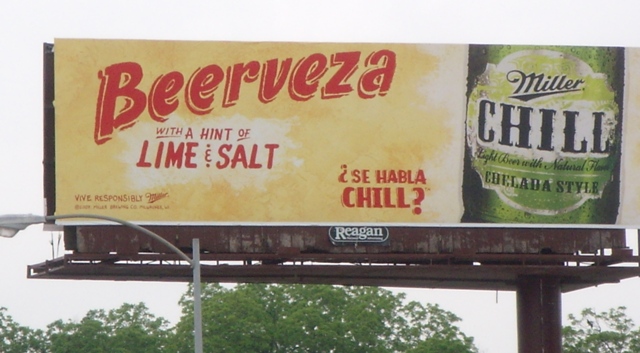 Ever since I first started studying Spanish over a decade ago, my teachers have been admonishing “Don’t use Spanglish!” when I would try to guess at a word I didn’t know by turning a English word into something that sounded like Spanish or by using a false cognate.
Ever since I first started studying Spanish over a decade ago, my teachers have been admonishing “Don’t use Spanglish!” when I would try to guess at a word I didn’t know by turning a English word into something that sounded like Spanish or by using a false cognate.
Well, it turns out that in the real world, Spanglish, that dynamic fusion of English and Spanish that confounds teachers and linguists but helps ordinary people get by in places where the two languages overlap, has been becoming more and more popular.
In fact, just recently the Spanish version of Spanglish, “espanglish”, has been accepted into the Real Academia Espanola’s dictionary! The RAE is considered the bastion of proper Spanish language, so an entry for espanglish there means that Spanglish has finally been accepted as a real, unavoidable and unstoppable phenomena. It also reflects the fact that the RAE is finally beginning to include words relevant to North American speakers, whereas before it tried to ignore this part of the Spanish speaking world.
You can read more about it here: Spanglish in the RAE
